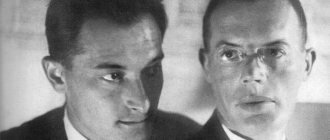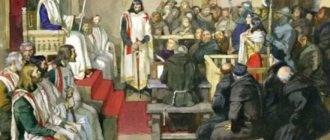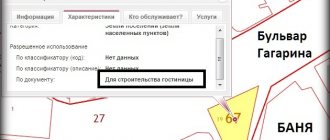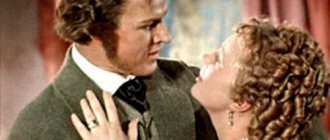“The Adventures of the Good Soldier Švejk” is a famous book by the Czech satirist Jaroslav Hasek in four volumes. It tells about the stupidity of those in charge and their down-to-earth, short-sightedness, but most importantly, it calls for turning our minds and hearts away from the idea of war.
The main character of the book was loved by readers from all over the world, which is why more monuments to this colorful character were erected than to the author of the novel. By the way, it was filmed several times, and Bertolt Brecht wrote a play based on this book during the Second World War.
What is the novel “The Adventures of the Good Soldier Schweik” about?
At first, Jaroslav Hasek wrote numerous everyday stories, but the war radically changed his creative direction, and he took on the epic. “The Adventures of the Good Soldier Švejk during the World War” (Czech: Osudy dobrého vojáka Švejka za světové války, 1921 - 1923) is a serious and painstaking work that was never completed.
The novel exposes the bureaucracy and worthlessness of the military, the cruelty and slow-wittedness of many cogs of the large state system. When hard times came, all the spiritual deformities climbed up like mushrooms after the rain. Hasek does not spare these people, condemning their petty motives, and shows all the contradictions as they are.
The good soldier Schweik is a talent who knows how to appear like a fool, carrying out the orders of his superiors with absurd accuracy, understanding everything verbatim. The short-sighted and insensitive authorities see Schweik as an idiot, but it becomes clear to the reader who he really is. The military system and chain of command looks stupid and ridiculous when faced with such a problem as an overly obedient soldier. Schweik baffles his superiors, without contradicting them at all, but using their own stupidity as a weapon. As you read, it becomes clear that the war would have been impossible if there had been more such obedient Schweiks in the army.
The book was a stunning success precisely because of its anti-war orientation, causing not only public but also state resonance. It is not surprising that during wartime the epic was banned in the Czechoslovak army. The name Schweik very quickly acquired a negative connotation, becoming a household name.
The structure of the work consists of individual stories from the soldier’s life of the good soldier Schweik, as well as his memories. All this is generously flavored with humor, and even outright satire. The author's language is surprisingly colorful, replete with jargon and Prague argot.
A distinctive feature of this novel from all others is that the author never read it himself. Each written part was immediately sent to the publisher, and was written straight away.
Now let’s take a look at the juiciest and funniest quotes from the novel “The Adventures of the Good Soldier Schweik.”
The good soldier Schweik in captivity - Quotes
... the good soldier Schweik demonstrated his loyalty on the Prague streets in front of a large crowd of people.Sitting in a wheelchair for paralytics, rented from Stony, in which his student Boguslav was driving him through the streets of the royal city, Schweik clutched a crutch in each hand and shouted to the excited spectators:
- To Belgrade, to Belgrade!
People laughed and joined the crowd. The first blow - in the Museum area - was given to a Jew who shouted: “Heil.” At the corner of Krakowska Street, a crowd beat three German orderlies and sang “You can’t buy us - did you see the cookie?” reached Vodichkova, where the brave soldier Schweik, overcoming the pain, stood up in his wheelchair and, waving his crutches, shouted again:
- Well, one more time: to Belgrade, to Belgrade!
Then the police swooped in - on foot and on horseback. In five minutes, Schweik in a wheelchair and his student found themselves the only civilians in a sea of police uniforms.
It was at the wheelchair for the paralytic that police commissioner Klima encountered the chief of the mounted police, Klaus.
- The catch is not bad! - Klima remarked by way of greeting.
“Not a bad catch,” Klaus nodded to him.
“Get off,” the mustachioed officer ordered Schweik.
- I can’t, I have rheumatism, and in general I...
“Hold your tongue,” Commissar Klima interrupted him. - Do you think we are fools? Come on, get him out of the stroller!
Four policemen rushed at Schweik, while six horsemen and twelve footmen dragged the student Boguslav along Vodichkova, screaming at the top of his lungs:
- Master, master, these gentlemen are taking me away!
Four guards, with a zeal worthy of their uniform, tried to get the rheumatic man to his feet. Schweik clenched his teeth in pain:
- No strength…
- Put the malingerer back in the stroller! - a new order was heard, executed with lightning speed. Only Schweik’s jacket burst at the back, and the lining of his vest was cracked, and the collar remained in the hands of one of the zealous ones.
Two policemen pushed a carriage with valuable loot in front of them, about twenty others walked alongside, and on both sides, scowling, rode eight more mounted “winners.”
The rooster feathers of the sultans fluttered in the wind, the horses neighed. The procession headed towards the police headquarters. And then a blissful smile appeared on the lips of the good soldier Schweik. He felt that his legs seemed to be freed from heaviness. Now you could even move your toes in your shoes. Schweik was faced with a great scientific mystery. The signs of rheumatism disappeared as the procession approached the police headquarters. Face to face with the police system, rheumatism was clearly losing ground, and when the police gates on Bartolomejska Street slammed behind the brave soldier Schweik, he even tried to jump from the wheelchair. This was considered additional evidence of simulation. - the scene is developed in the novel (book one, chapter VII)
Funny quotes from the novel “The Adventures of the Good Soldier Schweik”
- In a madhouse, everyone could say whatever came into his head, as if in parliament.
- Modesty adorns a man, but a real man does not wear jewelry.
- “Our business is rubbish,” he began words of consolation.
- After bacchanalia and orgies there always comes a moral hangover.
- Throwing crap right and left is a more or less convincing argument, but an intelligent person, even in a state of irritation or in an argument, should not resort to such expressions.
- You're more likely to hit a fat Archduke than a skinny one.
- It’s also impossible without cheating. If all people cared only about the well-being of others, they would be even more likely to fight among themselves.
- The trouble is, when a person suddenly starts philosophizing, it always smells like delirium tremens.
- Not everyone can be smart. As an exception, there should also be stupid people, because if everyone were smart, then there would be so much intelligence in the world that every second person would become a complete idiot.
- “I can’t imagine,” said Schweik, “that an innocent person would be sentenced to ten years.” True, once an innocent person was sentenced to five years - I heard that, but ten is perhaps too much!
- Let it be as it was - after all, somehow it was! It was never like this, it never happened.
- From the walls of the police department there was a spirit of power alien to the people.
- The military-legal apparatus was magnificent. Every state facing general political, economic and moral collapse has such a judicial apparatus.
- While here the king was being beaten with an ace, far away at the front kings were beating each other with their subjects.
- Next time, take a closer look at who you are swimming with: in the water, every naked person looks like a deputy, even if he is a murderer.
- I sometimes notice to myself that I am weak-minded, especially in the evening...
- I think that everything should be looked at impartially. Anyone can make a mistake, and if you think about something for a very long time, you will certainly make a mistake.
- A soldier who is being escorted always has more experience than those who are guarding him.
- In general, everything in the world suddenly seemed so vile and disgusting to him that he felt the need to get drunk and get rid of the world's sorrow.
- “The best thing,” said Schweik, “is to pretend to be an idiot.”
Czech satirist writer.
Aphorisms, quotes -
sheet
1 () () Biography of Jaroslav Hasek >>
Quotes from the novel by Jaroslav Hasek “The Adventures of the Good Soldier Schweik”, 1921 - 1923
A great era needs great people. But there are also unrecognized, modest heroes in the world who have not won the glory of Napoleon. History says nothing about them. But with careful analysis, their glory would eclipse even the glory of Alexander the Great.
I sincerely love the good soldier Schweik and, presenting to the readers his adventures during the World War, I am sure that everyone will sympathize with this unrecognized hero. He did not set fire to the temple of the goddess in Ephesus, as the fool Herostratus did in order to get into newspapers and school textbooks. And this is quite enough.
Preparations for sending people to the next world were always made in the name of God or another higher being created by human imagination. The ancient Phoenicians, before cutting the throat of a captive, also performed a solemn service, as new generations did several thousand years later, going to war to destroy the enemy with fire and sword. Cannibals in the Guinean Islands and Polynesia, before the ceremonial consumption of prisoners or worthless people, such as missionaries, travelers, traveling salesmen of various companies and simply curious people, make sacrifices to their gods, performing a wide variety of religious rituals. But, since the culture of church vestments has not yet penetrated to them, on special occasions they decorate their behinds with wreaths of bright feathers of forest birds. The Holy Inquisition, before burning its unfortunate victim, celebrated a solemn mass with chants. A priest always participates in the execution of a criminal, burdening the condemned with his presence. In Prussia, a pastor led an unfortunate condemned man to the axe, in Austria, a Catholic priest led him to the gallows, and in France, to the guillotine. In America, a priest led him to the electric chair, in Spain, to a chair with an intricate device for strangulation, and in Russia, a bearded priest accompanied the revolutionaries. for execution, etc. And at the same time they always manipulated the crucified man, as if wanting to say: “They will just cut off your head, or just hang you, strangle you, or pass fifteen thousand volts through you - but this is sheer nonsense in comparison with what what he had to experience!
The great massacre - the world war - also did not happen without the blessing of the priests. Regimental priests of all armies prayed and said mass for the victory of those who supported them. The priest appeared during the execution of mutinous soldiers; the priest could also be seen at the executions of Czech legionnaires. Nothing has changed since the robber Vojtech, nicknamed “the saint,” exterminated the Baltic Slavs with a sword in one hand and a cross in the other. Throughout Europe, people, like cattle, went to the slaughterhouse, where they were driven along with the butchers - emperors, kings, presidents and other rulers and generals - by clergy of all faiths, blessing them and forcing them to take a false oath: “On land, in the air, on the sea.” …" etc.
- What kind of insults to the Emperor are made when drunk? - (secret police agent Bretschneider)
- What insults are inflicted on the Emperor when he is drunk?
All sorts of things. Get drunk, have the Austrian anthem played for you, and you will see for yourself how much you will say. Invent so much about the Emperor that if only half were true, he would be disgraced for the rest of his life. - (Schweik)
The clean, comfortable rooms of the regional criminal court made the most favorable impression on Schweik: whitewashed walls, black polished bars and the fat Pan Demertini himself, the senior warden of the remand prison […] The famous history of Roman rule over Jerusalem was repeated. Those arrested were taken out and brought before the court of the Pilates of 1914 down in the basement, and the investigators, the modern Pilates, instead of honestly washing their hands, sent to Tessig for fries with red pepper sauce and Pilsner beer and sent more and more incriminating materials to state prosecutor's office. Here, in most cases, all logic disappeared and the paragraph won, the paragraph strangled, the paragraph acted like an idiot, the paragraph snorted, the paragraph laughed, the paragraph threatened, the paragraph killed and did not forgive. These were jugglers of laws, priests of the dead letter of the law, devourers of the accused, tigers of the Austrian jungle, calculating their leap on the accused according to the number of paragraphs. The exception was a few people (just like in the police department) who did not take the law seriously. For even among the tares there will always be wheat.
“I was also examined by forensic doctors when I was brought before a jury for stealing carpets. They declared me mentally retarded. Now I've wasted the steam thresher, and I won't get anything for it. Yesterday my lawyer said that if I have been declared mentally retarded once, it will be useful for the rest of my life. - (“young man”, one of the arrested)
- Forensic doctors are bitches!
Recently a skeleton was accidentally dug up in my meadow, and forensic doctors declared that this man died forty years ago from a blow to the head with some blunt instrument. I am thirty-eight years old, and they imprisoned me, although I have a baptismal certificate, an extract from the registry register and a registration certificate. — (“the crooked little man,” one of the arrested)
It’s also impossible without cheating. If all people cared only about the well-being of others, they would be even more likely to fight among themselves. - (Schweik)










